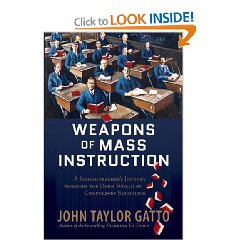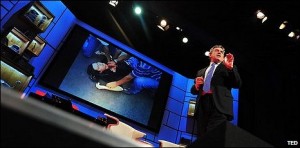By William Greider, The Nation
Posted on July 17, 2009, Printed on July 18, 2009
The financial crisis has propelled the Federal Reserve into an excruciating political dilemma. The Fed is at the zenith of its influence, using its extraordinary powers to rescue the economy. Yet the extreme irregularity of its behavior is producing a legitimacy crisis for the central bank. The remote technocrats at the Fed who decide money and credit policy for the nation are deliberately opaque and little understood by most Americans. For the first time in generations, they are now threatened with popular rebellion.
During the past year, the Fed has flooded the streets with money — distributing trillions of dollars to banks, financial markets and commercial interests — in an attempt to revive the credit system and get the economy growing again. As a result, the awesome authority of this cloistered institution is visible to many ordinary Americans for the first time. People and politicians are shocked and confused, and also angered, by what they see. They are beginning to ask some hard questions for which Federal Reserve governors do not have satisfactory answers.
Where did the central bank get all the money it is handing out? Basically, the Fed printed it, out of thin air. That is what central banks do. Who told the Fed governors they could do this? Nobody, really — not Congress or the president. The Federal Reserve Board, alone among government agencies, does not submit its budgets to Congress for authorization and appropriation. It raises its own money, sets its own priorities.
Representative Wright Patman, the Texas populist who was a scourge of central bankers, once described the Federal Reserve as “a pretty queer duck.” Congress created the Fed in 1913 with the presumption that it would be “independent” from the rest of government, aloof from regular politics and deliberately shielded from the hot breath of voters or the grasping appetites of private interests — with one powerful exception: the bankers.
The Fed was designed as a unique hybrid in which government would share its powers with the private banking industry. Bankers collaborate closely on Fed policy. Banks are the “shareholders” who ostensibly own the twelve regional Federal Reserve banks. Bankers sit on the boards of directors, proposing interest-rate changes for Fed governors in Washington to decide. Bankers also have a special advisory council that meets privately with governors to critique monetary policy and management of the economy. Sometimes, the Fed pretends to be a private organization. Other times, it admits to being part of the government.
The antiquated quality of this institution is reflected in the map of the Fed's twelve regional banks.
- Five of them are located in the Midwest (better known today as the industrial Rust Belt).
- Missouri has two Federal Reserve banks (St. Louis and Kansas City), while
- the entire West Coast has only one (located in San Francisco, not Los Angeles or Seattle).
- Virginia has one; Florida does not.
Among its functions, the Federal Reserve directly regulates the largest banks, but it also looks out for their well-being — providing regular liquidity loans for those caught short and bailing out endangered banks it deems “too big to fail.” Critics look askance at these peculiar arrangements and see “conspiracy.” But it's not really secret. This duck was created by an act of Congress. The Fed's favoritism toward bankers is embedded in its DNA.
This awkward reality explains the dilemma facing the Fed. It cannot stand too much visibility, nor can it easily explain or justify its peculiar status.
Fed chair Ben Bernanke responded with the usual aloofness. An audit, he insisted, would amount to “a takeover of monetary policy by the Congress.” He did not appear to recognize how arrogant that sounded. Congress created the Fed, but it must not look too deeply into the Fed's private business. The mystique intimidates many politicians. The Fed's power depends crucially upon the people not knowing exactly what it does.
President Obama inadvertently made the political problem worse for the Fed in June, when he proposed to make the central bank the supercop to guard against “systemic risk” and decide the terms for regulating the largest commercial banks and some heavyweight industrial corporations engaged in finance. The House Financial Services Committee intends to draft the legislation quickly, but many members want to learn more first. Obama's proposal gives the central bank even greater power, including broad power to pick winners and losers in the private economy and behind closed doors. Yet Obama did not propose any changes in the Fed's privileged status. Instead, he asked Fed governors to consider the matter. But perhaps it is the Federal Reserve that needs to be reformed.
Six reasons why granting the Fed even more power is a really bad idea:
1. It would reward failure. Like the largest banks that have been bailed out, the Fed was a co-author of the destruction.
2. Cumulatively, Fed policy was a central force in destabilizing the US economy.
3. The Fed cannot possibly examine “systemic risk” objectively because it helped to create the very structural flaws that led to breakdown.
4. The Fed can't be trusted to defend the public in its private deal-making with bank executives. The numerous revelations of collusion have shocked the public, and more scandals are certain if Congress conducts a thorough investigation.
5. Instead of disowning the notorious policy of “too big to fail,” the Fed will be bound to embrace the doctrine more explicitly as “systemic risk” regulator.
6. This road leads to the corporate state — a fusion of private and public power, a privileged club that dominates everything else from the top down.
Whatever good intentions the central bank enunciates, it will be deeply conflicted in its actions, always pulled in opposite directions.
Obama's reform might prevail in the short run. The biggest banks, after all, will be lobbying alongside him in favor of the Fed, and Congress may not have the backbone to resist. The Fed, however, is sure to remain in the cross hairs. Too many different interests will be damaged —
- thousands of smaller banks,
- all the companies left out of the club,
- organized labor,
- consumers and
- other sectors,
- not to mention libertarian conservatives like Texas Representative Ron Paul.
The obstacles to democratizing the Fed are obviously formidable. Tampering with the temple is politically taboo. But this crisis has demonstrated that the present arrangement no longer works for the public interest. The society of 1913 no longer exists, nor does the New Deal economic order that carried us to twentieth-century prosperity. The country thus has a rare opportunity to reconstitute the Federal Reserve as a normal government agency, shorn of the bankers' preferential trappings and the fallacious claim to “independent” status as well as the claustrophobic demand for secrecy.
Progressives in the early twentieth century, drawn from the growing ranks of managerial professionals, believed “good government” required technocratic experts who would be shielded from the unruly populace and especially from radical voices of organized labor, populism, socialism and other upstart movements. The pretensions of “scientific” decision-making by remote governing elites — both the mysterious wisdom of central bankers and the inventive wizardry of financial titans — failed spectacularly in our current catastrophe. The Fed was never independent in any real sense. Its power depended on taking care of its one true constituency in banking and finance.
The reform of monetary policy, in other words, has promising possibilities for revitalizing democracy. Congress is a human institution and therefore fallible. Mistakes will be made, for sure. But we might ask ourselves, If Congress were empowered to manage monetary policy, could it do any worse than those experts who brought us to ruin?
© 2009 The Nation All rights reserved.









